Back
How to Prevent Rotten Teeth EffectivelySep 17
Sep 17
How to prevent rotten teeth effectively? Rotten teeth, often caused by severe tooth decay, are not only painful but also dangerous for your overall health. Untreated, they can spread infection, cause tooth loss, and lead to expensive dental work. Fortunately, most cases can be prevented with consistent care and the right tools. In this article, we’ll explore the main causes, symptoms, and risks of rotten teeth—and explain how BrushO’s Smart Electric Toothbrush, with its powerful cleaning technology, hygienic design, quality brush heads, and smart pressure sensor, makes prevention simple and effective.
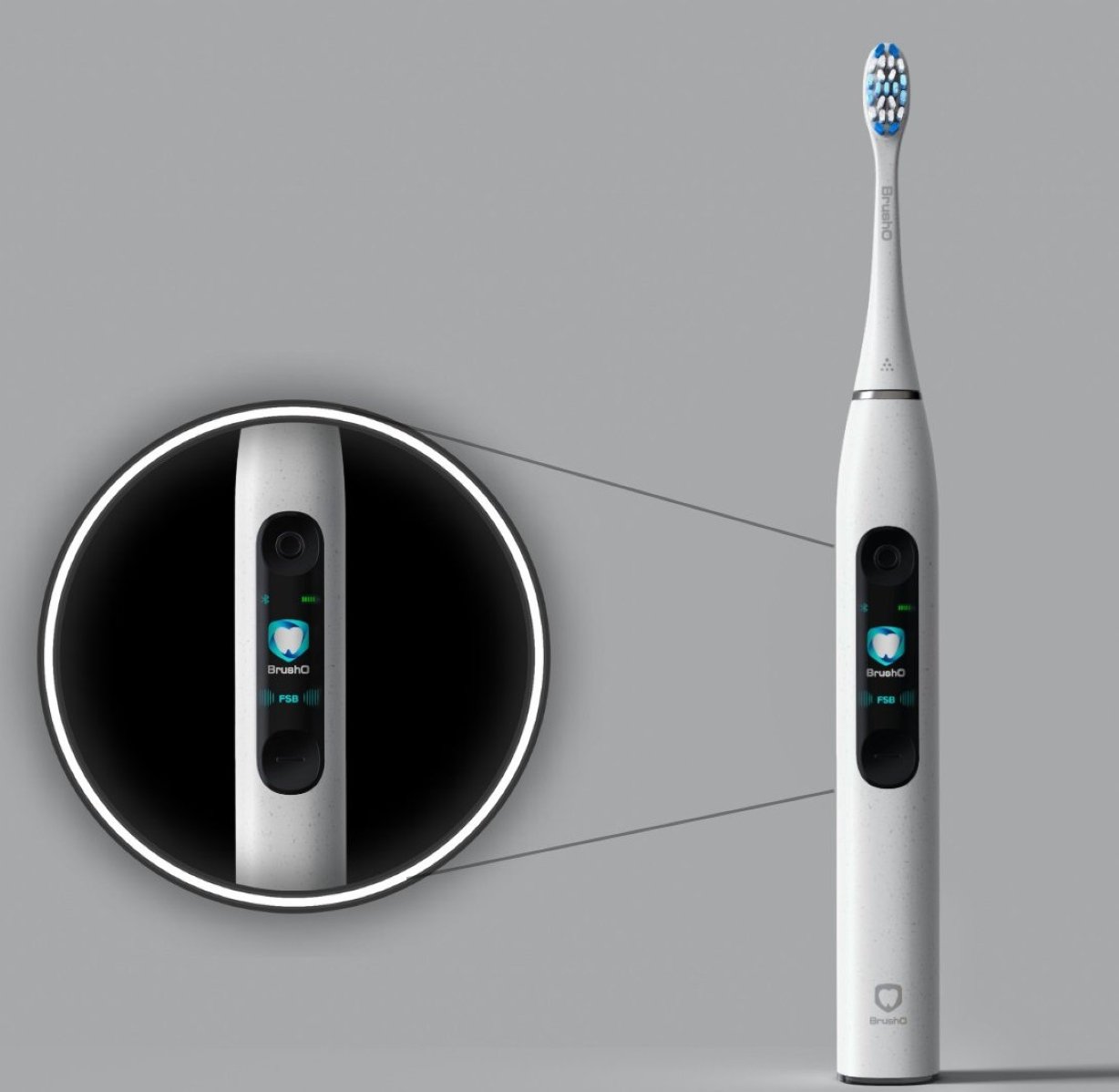
What Are Rotten Teeth?
Rotten teeth are teeth damaged by advanced decay. They may appear dark, brittle, or broken, and often cause pain or bad breath. Unlike early-stage cavities, rotten teeth typically require more serious treatment, from fillings to root canals or even extractions.
Main Causes of Rotten Teeth
- Poor oral hygiene: Infrequent brushing and flossing allow plaque and bacteria to thrive.
- Sugary diet: Excess sugar and acid erode tooth enamel.
- Dry mouth: Less saliva means less natural defense against bacteria.
- Neglected dental visits: Small issues go unnoticed until they worsen.
- Improper brushing technique: Missing areas or brushing ineffectively leaves bacteria behind.
Symptoms You Shouldn’t Ignore
- Persistent toothache or sensitivity
- Visible holes, cracks, or dark spots
- Swollen gums or bleeding near decayed teeth
- Chronic bad breath
- Food is getting stuck repeatedly in the same place
Risks of Untreated Rotten Teeth
- Infections spreading to the gums or the jawbone
- Tooth loss, makes chewing more difficult
- Higher dental costs: fillings, root canals, or implants
- Systemic health issues: links to heart disease and diabetes
Daily Prevention Habits
- Brush twice daily with a high-quality toothbrush
- Replace brush heads every 3 months
- Floss daily to clean between teeth
- Limit sugary and acidic foods and drinks
- Drink plenty of water to keep the saliva flow healthy
- Visit your dentist every 6 months for checkups
How BrushO Helps Prevent Rotten Teeth ✨
The BrushO Smart Electric Toothbrush provides multiple features that directly support prevention:
- Powerful Cleaning Technology
High-frequency sonic vibrations remove plaque more effectively than manual brushing, reducing the bacteria that cause decay.
- Hygienic & Easy-to-Clean Design
With IPX7 waterproofing and an anti-splash motor, BrushO stays cleaner and is easier to maintain, preventing bacterial buildup on the brush itself.
- Premium Brush Heads
Each set includes 4 replaceable brush heads, ensuring you follow the dentist-recommended 3-month replacement rule. Durable bristles clean thoroughly without harming enamel.
- Smart Pressure Sensor
Real-time monitoring ensures you don’t brush too hard, protecting enamel from wear—a key factor in avoiding tooth decay.
👉 Together, these features make BrushO not just a toothbrush, but a daily preventive tool against rotten teeth.
FAQ: Rotten Teeth
Q1: Can rotten teeth heal naturally?
No. Once enamel is gone, it cannot regrow. Prevention is key.
Q2: What’s the first sign of rotten teeth?
Tooth sensitivity, discoloration, or persistent bad breath.
Q3: How often should I replace my toothbrush head?
Every 3 months—BrushO makes it simple by including 4 heads in every box.
Q4: Is brushing enough to prevent rotten teeth?
Brushing is essential, but flossing, diet, and dental checkups matter too.
Rotten teeth are painful, costly, and damaging to your overall health. But the good news is—they’re largely preventable. With consistent oral care and smarter tools like BrushO, you can reduce bacteria, protect enamel, and keep your smile healthy for years to come.
Can You Bring an Electric Toothbrush on a Plane?
Sep 18
Do You Really Need to Remove Wisdom Teeth?
Sep 17
Recent Posts

How to Disinfect Your Toothbrush
Keep your mouth clean by making sure your toothbrush is, too.

Why BrushO Offers Free Brush Heads
BrushO doesn’t just promise free brush heads for life — it rewards you for doing what’s best for your health: brushing daily.
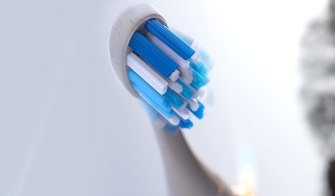
How to Reduce Dental Anxiety and Make Brushing Easier
Dental anxiety isn’t just about visiting the dentist—it can affect your daily oral hygiene, especially brushing. If brushing your teeth feels stressful, overwhelming, or even scary (especially for kids or those with sensory sensitivity), you’re not alone.
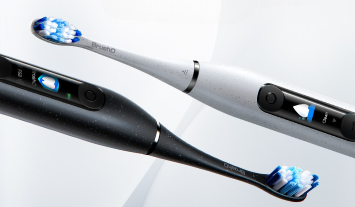
How to Master Smart Brushing with AI‑Powered Toothbrushes
Smart toothbrushes are transforming the way we care for our teeth.

How to Maximize Your Toothbrush Battery Life
Wondering why your electric toothbrush battery drains so quickly? Or how to make sure your AI-powered brush like BrushO performs at its best for years?
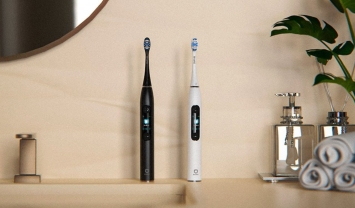
Are You Overpaying for a Toothbrush?
If your toothbrush costs a small fortune but doesn’t make your teeth feel cleaner, you might be paying more than you should. Here’s how to tell if you’re getting true value — and how to choose smarter.
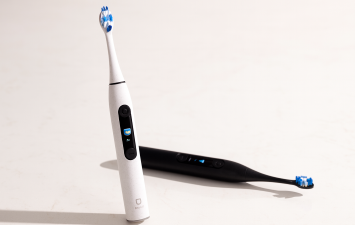
How to Switch from Manual to Electric Brush
Thinking of switching from a manual to an electric toothbrush?
Does Brushing Longer Mean Cleaner Teeth?
Many people believe that brushing longer automatically means a cleaner mouth—but is that true?
How to Brush Smarter, Not Harder
Brushing your teeth harder doesn’t mean brushing them better. In fact, it might be harming your gums and enamel.
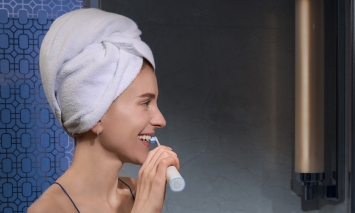
How to Make Your Diet Protect Your Teeth
Maintaining a bright, healthy smile isn’t just about brushing and flossing — your diet plays a huge role in oral health. The foods and drinks you consume every day can either help protect your teeth or contribute to decay and gum disease.
